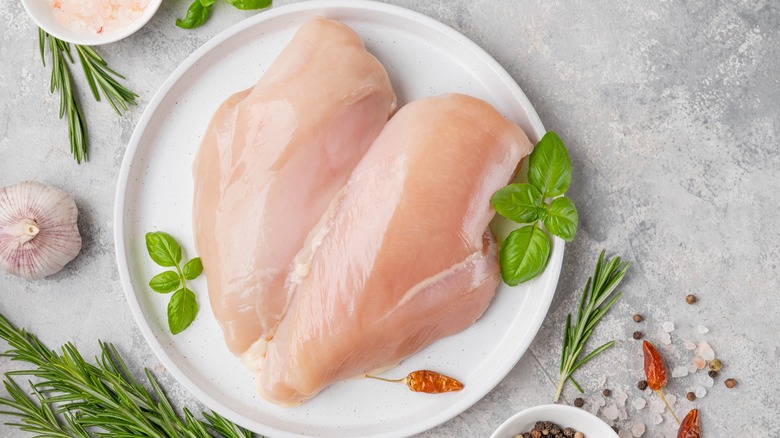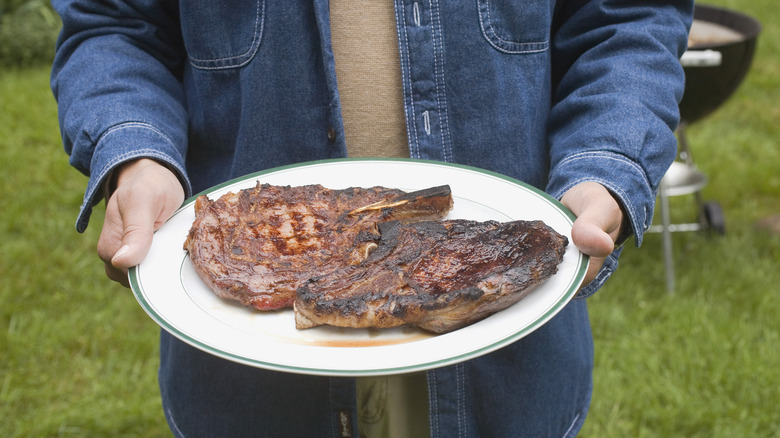Never Use The Same Plate For Raw And Cooked Cuts Of Meat
We've all been there — you're grilling up some delicious meat and it's about done. The plate you brought the raw meat out on is handy and you're planning to use it again when the protein is cooked. You may be thinking this helps minimize dish duty and it definitely will, but it also runs the risk of getting you and your loved ones sick. That's because those juices from the raw meat still linger in copious amounts once the protein leaves the plate, and when it returns to the plate fully cooked, your finished product now has dangerous bacteria on the surface.
This is known as cross-contamination and it occurs whether you're working with chicken, beef, pork, or fish, but especially with poultry. Some bacteria that can live in raw meat that we want to avoid are known as campylobacter, salmonella, clostridium perfringens, e. coli, and yersinia, according to the CDC. When these are consumed, your chances of getting food poisoning increase drastically. Since campylobacter lives on surfaces for up to four hours and salmonella for up to 32 hours, it definitely still lingers on the plate your raw meat touched by the time cooked meat returns to it.
Techniques to use to avoid cross-contamination
When transporting your raw meat to the heat — whether it's an outdoor grill, deep fryer, or a pot for poaching — you're going to need a second plate for when the meat is cooked. In order to remember this, try stacking a clean plate underneath your plate of raw meat. Once the meat is cooking, simply transfer the dirty plate to the sink or dishwasher and use the clean one underneath for transporting your meat once it comes off the heat. This is a wonderful method to practice regularly to avoid cross-contamination and sickness.
While hand-washing dishes that have touched raw meat seems ideal, it's typically best to run them through the dishwasher. A dishwasher exposes your plates and utensils to extremely high temperatures, killing the most germs compared to running it under a faucet of hot water. Another thing to remember is that if your raw meat was marinating in sauce prior to putting it on the grill, that marinade should also be discarded because it runs the risk of cross-contamination. With these tips in mind, your next dinner will feature delicious food that's also safe to eat for everyone.

